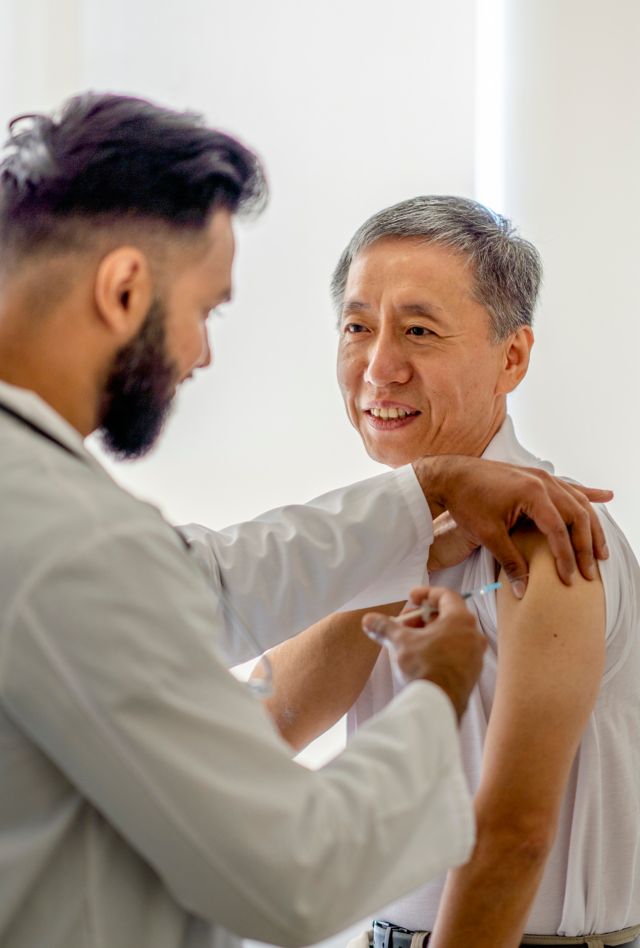The RSV Vaccine Is Here. Now Let’s Make Sure Older Adults Are Getting It.

Authors
Neha Trivedi
Research Scientist, Public Health
Meghan O’Leary
Research Scientist, Public Health
Amelia Burke-Garcia
Director of Digital Strategy and Outreach, Public Health
February 2024
Respiratory Syncytial Virus (RSV) is a common contagious virus, and its risks have increased as recent surges have affected a wider range of the population, including older adults.
Fortunately, this past fall, a new vaccine became available for adults aged 60 and up. But when it comes to ensuring that eligible adults receive their inoculations, the numbers say we have work to do.
Since the rollout of the vaccine, we have been tracking the perceptions of it by Americans aged 50 and older. We fielded a multi-wave survey—one wave last July and another in September—and found that vaccine awareness increased from 30 percent to 53 percent.
Despite this, older Americans remain divided in terms of willingness to get the vaccine. Between summer and fall 2023, intention to get the RSV vaccine did not exceed 30 percent. Topping their concerns about the RSV vaccine were:
The side effects of the vaccine
The development and approval process for the vaccine
An overall belief that vaccines in general do not work well
These attitudes are especially concerning given the recent increase in infections and hospitalizations from RSV. The Centers for Disease Control and Prevention (CDC) and other public health officials issued a Health Alert Network (HAN) Health Advisory in September 2023 to notify clinicians and caregivers about increases in RSV activity across some parts of the U.S.
Main Takeaways
As of fall 2023:
- 53 percent of older adults (aged 50 and up) were aware of the RSV vaccine.
- 70 percent of older adults (aged 50 and up) said that they would not or were not sure if they would get the RSV vaccine.
Of those who were unsure or would not get the vaccine, the reasons included:
- Concerns about the side effects
- Concerns about how the vaccine was developed
- Overall sentiment that vaccines do not work well
Communications Implications
Opportunities remain for targeted public health and health communication messaging to older adults. Communication efforts may help to raise awareness, address concerns, mitigate inaccurate information about the RSV vaccines, and help older adults make informed decisions about uptake.
Methodology
NORC analyzed data collected via the Foresight 50+ Consumer Omnibus, a monthly multi-client survey using NORC’s probability-based Foresight 50+ panel, which is designed to be representative of the U.S. household population of adults aged 50 and older. Interviews for this survey were conducted between July 20-24 and September 15-18, 2023.
Citation
Trivedi, N., O’Leary, M. and Burke-Garcia, A. (2024, February 22). The RSV Vaccine Is Here. Now Let’s Make Sure Older Adults Are Getting It. [Web blog post]. NORC at the University of Chicago. Retrieved from https://www.norc.org.





